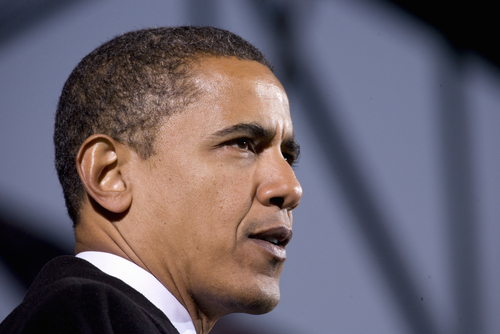
In a recent development that could have significant implications for the legal battle over classified documents, a conservative legal group has brought to light a previously undisclosed memo from the Obama administration. This revelation is poised to send shockwaves through the ongoing case against a former President, accused of improperly handling sensitive materials.
The memo in question originates from the Presidential Information Technology Committee (PITC), established by executive action after a security breach in the Executive Office of the President’s network by Russian hackers in October 2014. The committee, which includes members from the Departments of Defense and Homeland Security, was tasked with overseeing the control of presidential records.
BREAKING: Newly unveiled Obama secret memo reveals committee created in 2014 changed the controlling of Presidential records following Russian hacking, the failure to disclose this info likely makes any actions by Trump in docs case not actionable in court. pic.twitter.com/3mVxkLrWLX
— Patrick Webb (@RealPatrickWebb) January 30, 2024
At the heart of the controversy is the assertion that the PITC memo may have granted the President sweeping authority over the information he received during his tenure. Specifically, the memo appears to create a presumption that all information provided to the President falls under his exclusive control, a point that could challenge the current narrative that the former President had no right to possess or retain certain classified documents.
Legal experts from the group that unearthed the memo argue that this could establish a reasonable belief that the former President was, in fact, authorized to handle the documents in question. If true, this could potentially undermine the 37 federal counts he faces for storing classified documents at his private residence.
/1🚨BREAKING — A secret Obama memo, the Presidential Information Technology Committee (PITC), regarding control of Presidential records could change everything in the DOJ’s politicized prosecution of Trump…
THREAD: pic.twitter.com/fqdxj2xg83
— America First Legal (@America1stLegal) January 30, 2024
Moreover, if the evidence used in the prosecution was stored on the PITC network, it should have been disclosed to the defense, raising questions about the transparency and fairness of the legal process. The group contends that the President of the United States has absolute authority over presidential papers, a stance that challenges the limits that Congress or federal courts may impose.
The group’s findings are not just a matter of legal technicality but strike at the core of public transparency and the integrity of the judicial system. They suggest that the government may have failed to disclose necessary information to the defendant, which could significantly affect the evidentiary support for the indictment.
This case has captured the nation’s attention, not only because of its high-profile defendant but also due to its broader implications for the handling of classified information and the powers of the presidency. As the legal proceedings continue, the debate over presidential authority and the safeguarding of national security documents remains a contentious issue.
The American public deserves clarity on the matter, and the disclosure of the secret memo has added a new layer of complexity to an already intricate legal battle. As more details emerge, the potential impact of the Obama-era memo on the case will be closely scrutinized by legal analysts and political commentators alike.









